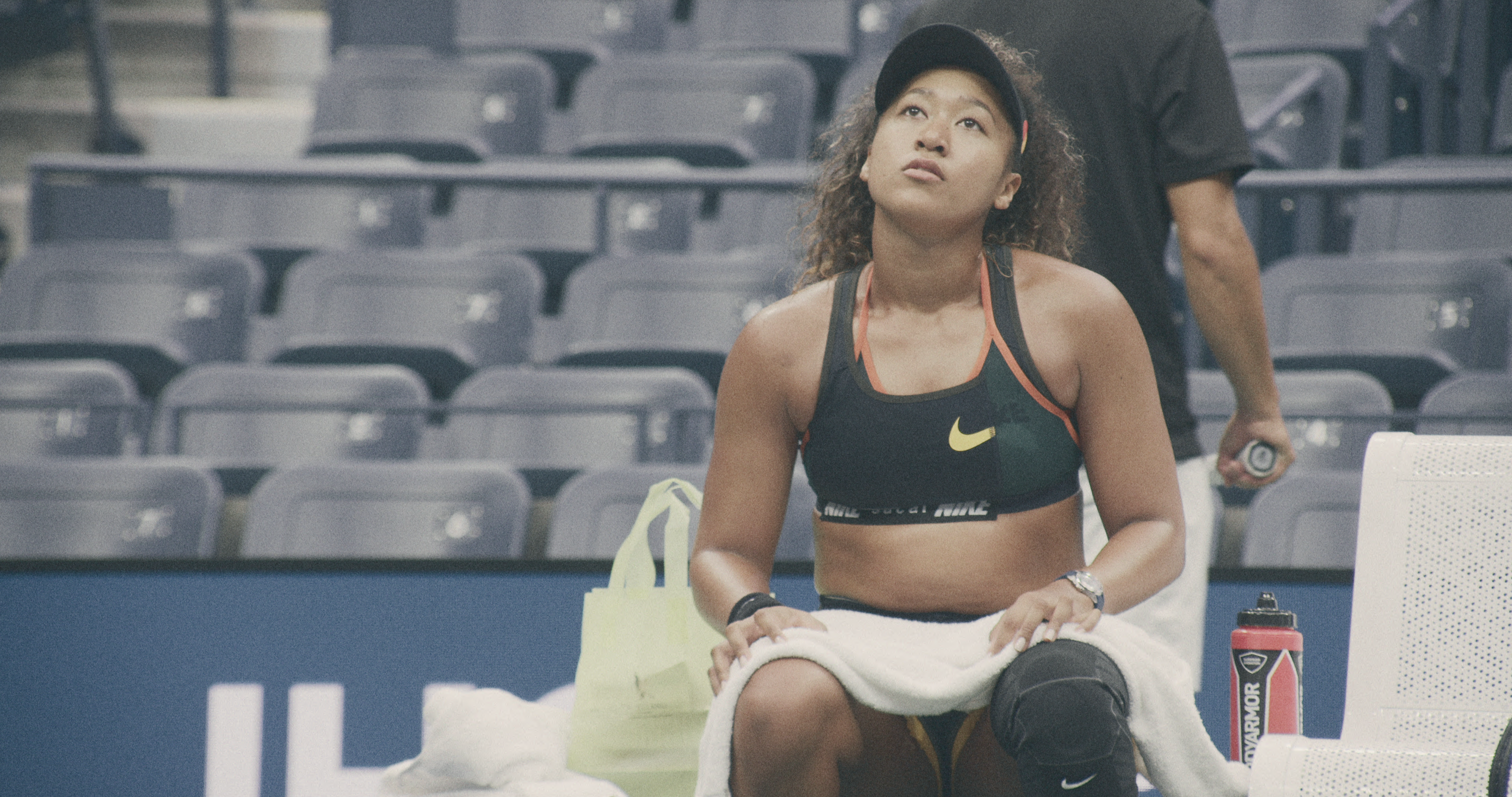Naomi Osaka is a champion. She’s won four grand slams, won the U.S. Open and the Australian Open, and is the first Asian player to be ranked number one. She’s also a young woman who was thrust into the media spotlight quite suddenly, with little preparation, and without a guide on how to navigate being so visible in her losses and her wins. How she’s navigating it all is the vibe of Naomi Osaka, the Netflix documentary.
I think that as people who like to consume new, trendy things we often forget that people exist on the other side of that consumption. These athletes and celebrities, even as well paid as they are, don’t exist primarily for our digestion and our social media hot takes and mockery. They’re human, real. And though they can find ways to navigate an overwhelming world of other people’s opinions, it doesn’t mean that the navigation doesn’t come without costs both mentally and physically. I’m reminded of this as I watch Naomi matter of factly state the way it weighs on her and the toll it takes on her mental health.
The documentary quietly shows her navigation of her new life, as well as the missteps and triumphs, with a soft intelligence that understands that the audience is able to grasp the nuances of Naomi’s situation. In a soft voice, she talks about the pressure, the need for a rest, and not being able to sleep before a match or in her new mansion. It makes it clear that Naomi is going through something that not many people her age will understand. She’s a superstar, a millionaire, a fashion designer, a tennis champion, and she is constantly watched, judged, and primed for media attention. No one tries to downplay this otherness, but they allow her to be human in a way that documentaries often neglect.

Naomi’s piece in the Time titled It’s Okay Not to Be Okay is now famous, as is her honesty about her struggles with the media during tournaments, so it puts the press conferences shown in the documentary in a new light of understanding. She twists her hands anxiously as she sits in front of the press after a devastating win, answers their questions with poise and honesty, but I couldn’t help ask myself why. Why is it necessary to put athletes under that sort of spotlight without any grace or compassion for their mental health?
It’s nothing more than performative grief and humble dignity that doesn’t add to the sport at all.
Beyond those quiet moments of spotlighting the pressure and the oddness of becoming an overnight superstar, the documentary shows snippets of Naomi’s life as she lives between tournaments and training. It highlights her love for her family, especially her sister, who she is incredibly close to, and it also shows how the death of Kobe Bryant affected her. Her grief is as heartbreaking as the loss of him, and the series does a good job of showing how he’s lived on through her efforts to improve herself, focus on her sport, and stand up politically for people. She wants to make him proud, and part of that for her, is growing into someone who stands for something.
She’s struggled with her identity and people’s perceptions of it – is frustrated that people are shocked when she’s as much Japanese as she is Black. She talks about how people blame her and want to ostracize her and “remove her Black card” for deciding to compete with Japan during the Olympics, as if African Americans are the only Black people on the planet. Her frustration that people don’t understand the difference between ethnicity and race was palpable and an ongoing conversation throughout as she struggles to deal with the reality of being so many peoples’ something.

I also really enjoyed seeing her blossom from someone who was trying to follow a blueprint of other people’s lives and into someone who understood that she’d only be happy following the path she carved out for herself. That meant designing clothes, being a champion, sure, but also standing up for Black Lives Matter, making statements with her masks, being loud about her support, withdrawing from the French Open, and ultimately what we’ve seen these past few months of being open with her mental health and the costs of media exposure. I related to this growth, as I think many of us can. We get told so often growing up that we have to follow a path in order to be successful, not often sure if that path is one we really want. I love that she was open with the struggle to make her own way, and I hope it inspires others to be true to themselves.
The strength of the quiet within the documentary can’t be overstated, too. The hushed moments, the spaces between playing, the pauses, and even the action all feel like her, like you’ve gotten under her skin and into her head and see the pressures but also the stillness and thoughtfulness that goes into her choices and into her sport. It was an unusual thing for these types of documentaries – to fill it with quiet when usually they’re so bound to being exciting and loud – and I think it really worked.
Overall, Naomi Osaka was an interesting glimpse into her world. It’s full of glamour and unending work, but also someone who is making the choice to prioritize herself and her needs, and I look forward to whatever she decides to do next. I know she’s going to be a champion at whatever she does.
Naomi Osaka is available to stream on Netflix.

